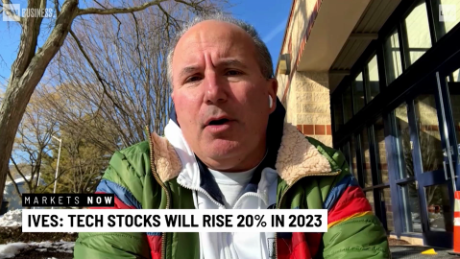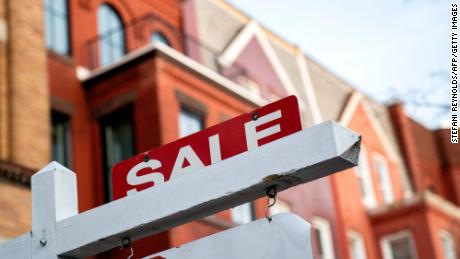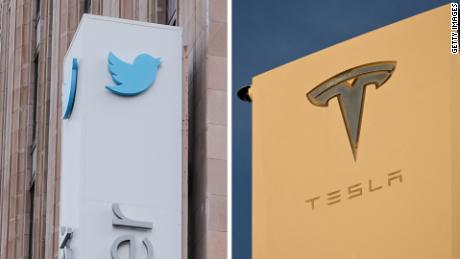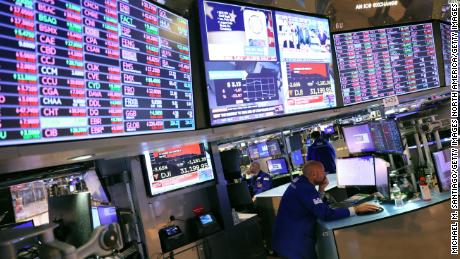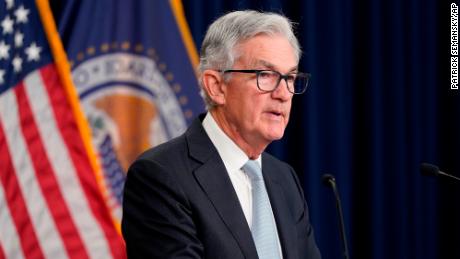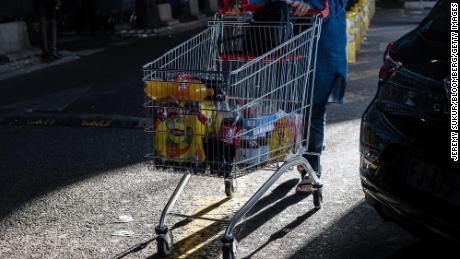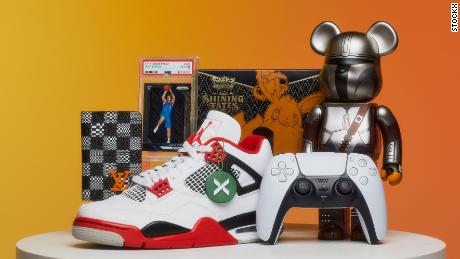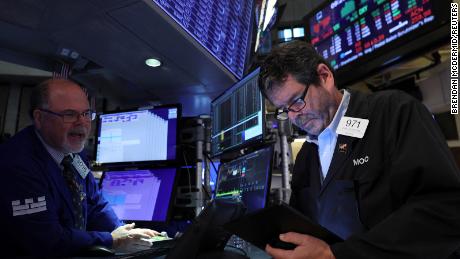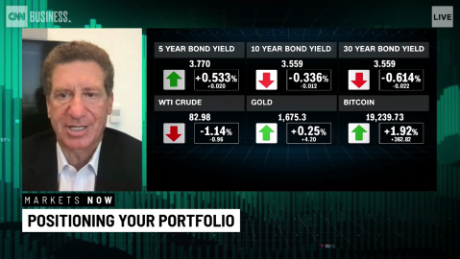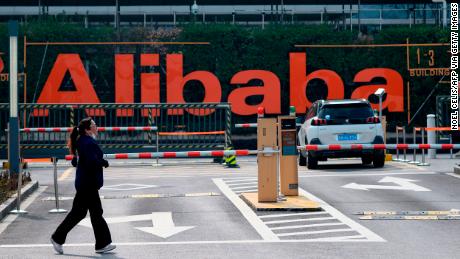A version of this story first appeared in CNN Business' Before the Bell newsletter. Not a subscriber? You can sign up right here.
New York (CNN Business)Is the stocks rally turning into a bubble? Consider the evidence: The S&P 500 and Nasdaq are not far from record highs. The VIX (VIX) volatility index has plunged in the past month.
There has also been a crazy run this summer in speculative stocks like Kodak (KODK), which is apparently a drug company now, and bankrupt companies such as Hertz (HTZ).
Then there's the surge in demand for many unprofitable initial public offerings and special purpose acquisition corporations like DraftKings and Nikola going public through blank check mergers.
And the CNN Business Fear & Greed Index, which measures seven indicators of investor sentiment, is not far from Extreme Greed levels.
The Wall Street euphoria suggests that this could be another bubble or market mania. They don't tend to end well. So is this rally running on fumes?
There are growing concerns about the fact that stocks have continued to head higher even as the global economy remains mired in recession.
The job market in the United States is far from pre-pandemic levels ŌĆö even though there are some gradual signs of improvement.
The United Kingdom's economic slump is particularly painful. And JPMorgan Chase (JPM) CEO Jamie Dimon said in a recent interview with CNN's Christine Romans that the market surge does not reflect the harsh economic reality many people face.
That makes it even more critical for the White House and Democratic leaders in Congress to come to an agreement on more stimulus.
"The US labor market continues to show signs of stabilizing, but referring to it as 'healing' is a bit of a stretch," said Samuel Rines, chief economist with Avalon Investment and Advisory, in a report.
"The economic consequences of this level of unemployment has not been fully felt by the economy due to the significant transfer payments from the government," Rines added. "As the 'surge' payments expire, the US economy will begin to feel the pain more acutely."
It's also worth noting that earnings ŌĆö to be blunt ŌĆö have been terrible.
Profits for the companies in the S&P 500 plunged nearly 34% in the second quarter, according to FactSet analyst Marc Evans. That was the worst drop in five years. And sales fell almost 9%, the biggest decline in nearly four years.
Evans also noted that earnings for the S&P 500 are now expected to fall nearly 19% this year, compared to an anticipated drop of just 1.2% back in March.
Add all this up and you have a market that appears to be overheated, according to Stifel head of institutional equity strategy Barry Bannister. He wrote in a recent report that the S&P 500 may be as much as 10% overvalued right now.
Bannister worries that investors are underestimating the risk of another surge in coronavirus cases leading to more damage to the job market and earnings growth later this year. He also believes 2021 earnings estimates are too high and will need to be revised downward.
For now, tech stocks like Apple (AAPL), Amazon (AMZN) and Microsoft (MSFT) have continued to propel the market higher thanks to strong earnings. But that may not last forever. And even quality companies can become too expensive.
"Valuations for the S&P 500 have been keeping us up at night," warned RBC Capital Markets head of US equity strategy Lori Calvasina in a report, adding that the recent run for tech stocks is reminiscent of the dot-com bubble in the Nasdaq 20 years ago.
All eyes on Chinese consumers
Chinese consumers, like just about everyone else around the world, are shopping more online and on their phones. That should be good news for homegrown e-commerce giants Alibaba (BABA) and JD.com (JD), both of which are due to report their second quarter earnings.
One of their rivals, Pinduoduo (PDD), whose shares have more than doubled this year, will also release its latest results.
Shares of JD have soared 75% in 2020 while Alibaba's stock is up about 20% year-to-date. The Chinese economy rebounded in the second quarter following a sharp contraction in the first three months of the year as a result of coronavirus.
Analysts are forecasting a nearly 30% increase in sales for JD from a year ago while revenue is expected to surge almost 50% at Alibaba.
But while investors are cheering the comeback of the Chinese consumer and broader economy, there are mounting worries that Alibaba could become the next target of President Donald Trump's war against Chinese tech companies.
The United States has already announced crackdowns on TikTok, the popular social media app owned by China's ByteDance, as well as a ban on Tencent's WeChat. And now the US Securities and Exchange Commission is looking into Baidu's (BIDU) video streaming unit iQiyi (IQ)for alleged fraud.
Trump wants ByteDance to sell the US assets of TikTok. Microsoft (MSFT) has confirmed it's discussed this with the president and there are also rumors Twitter (TWTR) may be interested in a deal.
Up next
Monday: JD.com earnings
Thursday: Alibaba earnings; weekly US jobless claims



